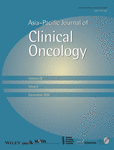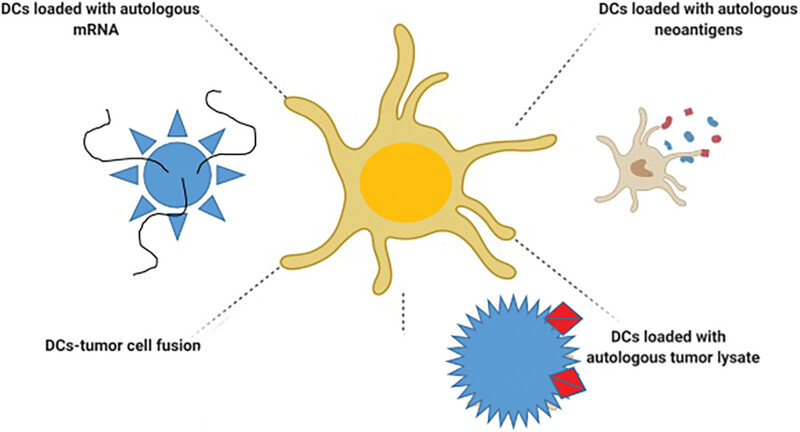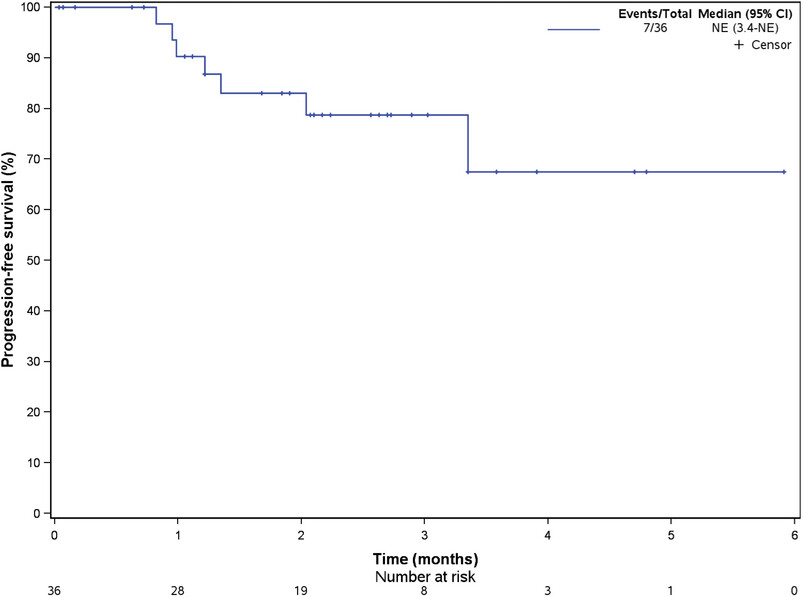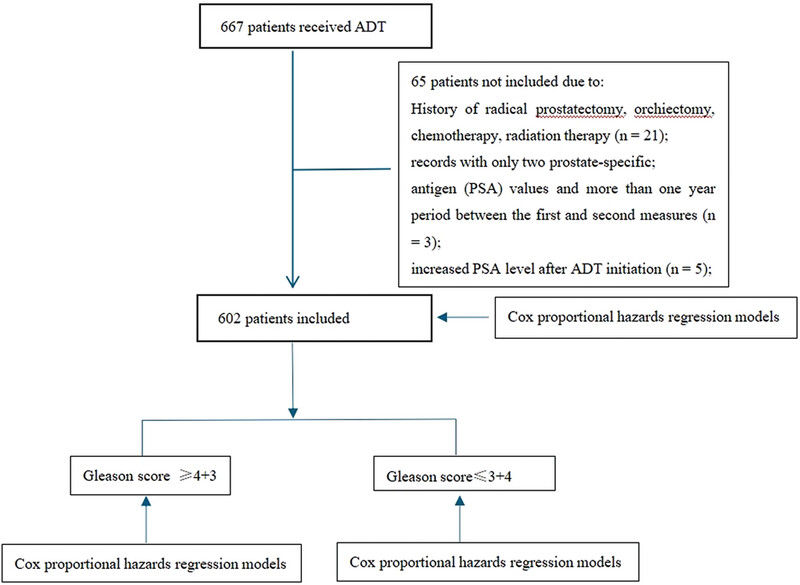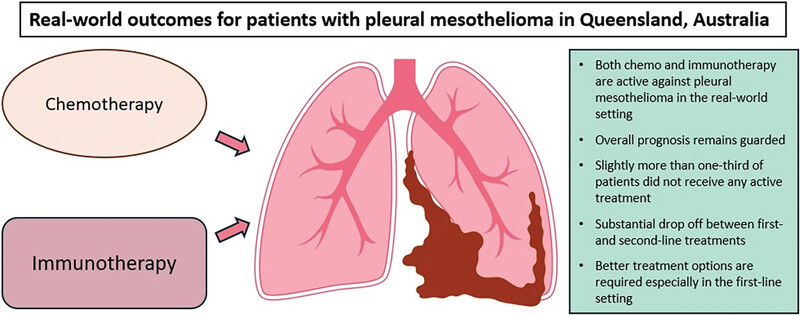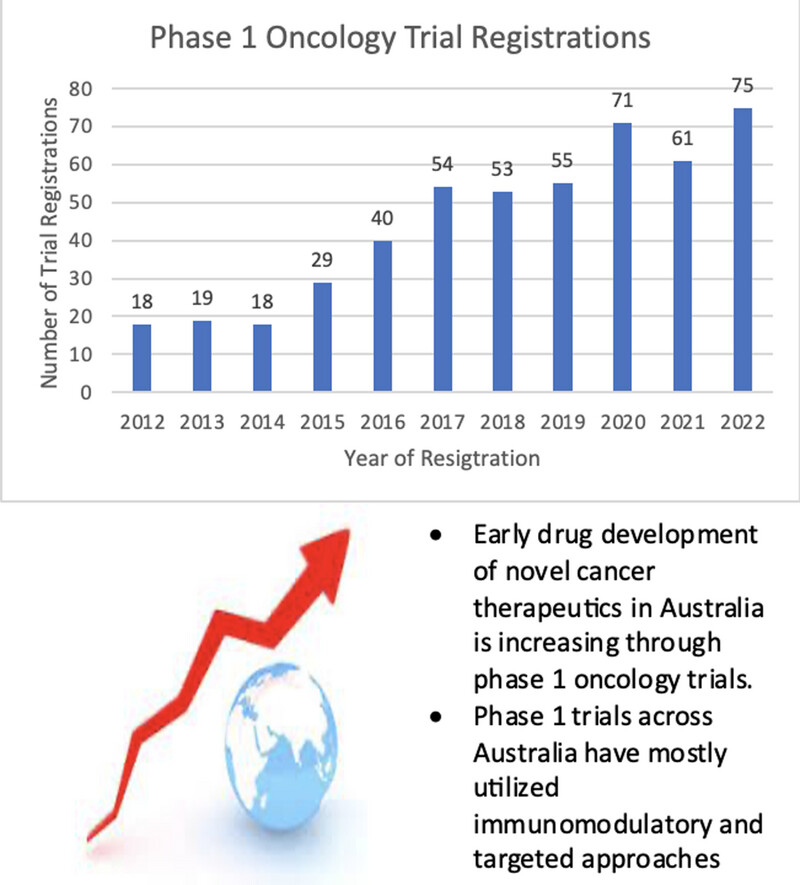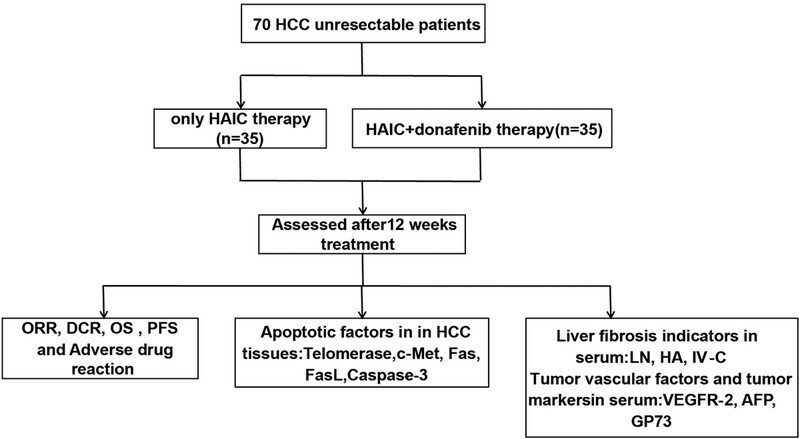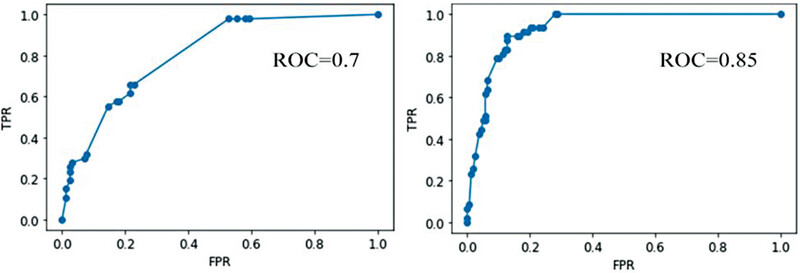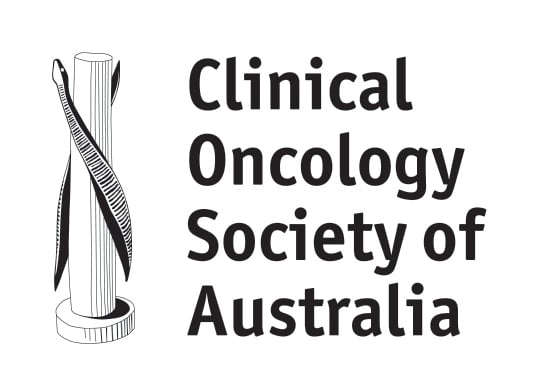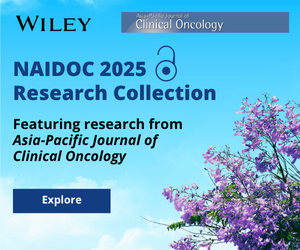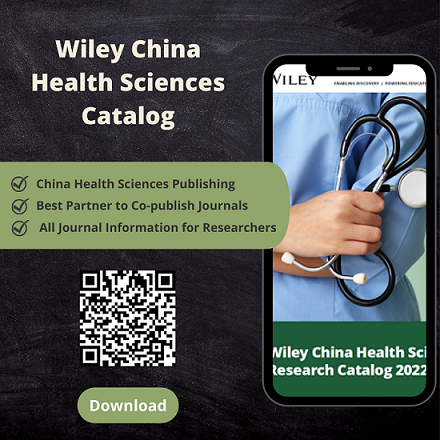Journal list menu
Export Citations
Download PDFs
ISSUE INFORMATION
REVIEW
The clinical utility of autologous tumor lysate-loaded dendritic cell vaccination for patients with glioma: A systematic review and meta-analysis
- Pages: 671-680
- First Published: 08 September 2024
Anaplastic thyroid cancer: A review of recent evidence and summary of an Australian institutional protocol
- Pages: 681-689
- First Published: 15 August 2024
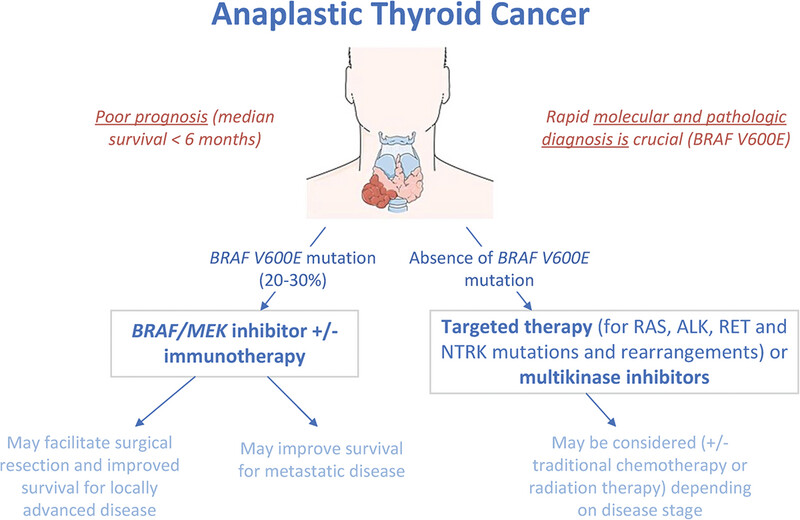
Anaplastic thyroid cancer (ATC) has a median survival of less than 6 months from diagnosis. BRAF V600E mutation is present in 20–30% of ATCs. For patients with BRAF V600E mutation, BRAF-targeted therapy may downstage initially unresectable disease to facilitate surgical resection, leading to improved survival and improve survival for metastatic disease (compared with traditional treatments).
Clinical breast examination: A screening tool for lower- and middle-income countries
- Pages: 690-699
- First Published: 29 September 2024
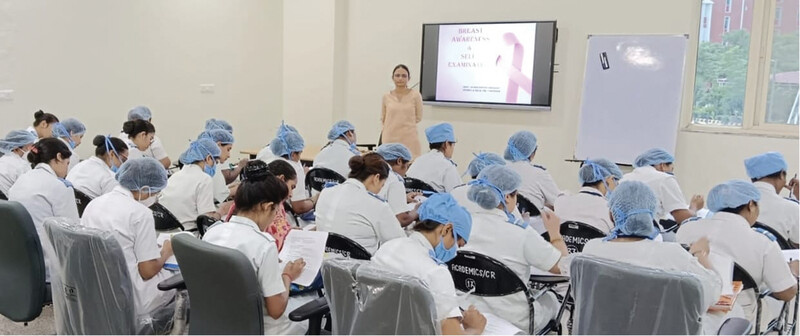
Lower- and middle-income countries are experiencing a concerning upward trend in breast cancer (BC) incidence, necessitating the implementation of cost-effective screening methods. Population-based randomized trials have gathered evidence for the role of clinical breast examination in significant down-staging of BC, which can be performed by trained health workers in minutes.
ORIGINAL ARTICLE
Ensartinib in the treatment of anaplastic lymphoma kinase-positive locally advanced or metastatic patients with lung squamous or adenosquamous carcinoma: A real-world, retrospective study
- Pages: 700-706
- First Published: 19 June 2024
Non-alcoholic fatty liver disease increases the risk of biochemical recurrence in high-grade metastatic prostate cancer patients
- Pages: 707-713
- First Published: 05 July 2024
Beyond the median: Estimating survival times for patients starting endocrine therapy for estrogen receptor-positive, metastatic breast cancer from recent randomized trials
- Pages: 714-722
- First Published: 16 June 2024
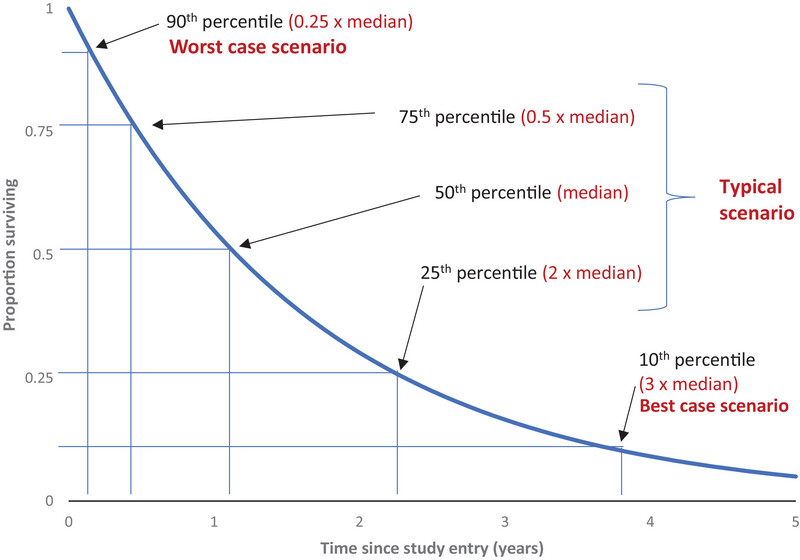
Estimates of worse-case, typical and best-case scenarios provide more hope and meaning to patients starting systemic therapy for metastatic breast cancer. Simple multiples of the median overall survival from clinical trials can accurately estimate representative survival scenarios for patients commencing endocrine therapy for metastatic breast cancer
Real-world outcomes for patients with pleural mesothelioma: A multisite retrospective cohort study
- Pages: 723-730
- First Published: 21 June 2024
Trends in phase 1 oncology clinical trials across Australia; Analysis of ClinicalTrials.gov 2012–2022
- Pages: 731-737
- First Published: 24 June 2024
PRIORITI: Phase 4 study of triptorelin or active surveillance in high-risk prostate cancer
- Pages: 738-746
- First Published: 03 July 2024
Efficacy and safety of hepatic arterial infusion chemotherapy combined with donafenib in the treatment of unresectable hepatocellular carcinoma
- Pages: 747-753
- First Published: 25 August 2024
Adherence to guidelines in curative treatment of venous thromboembolism in cancer patients: Insights from a retrospective Tunisian study
- Pages: 754-760
- First Published: 15 August 2024
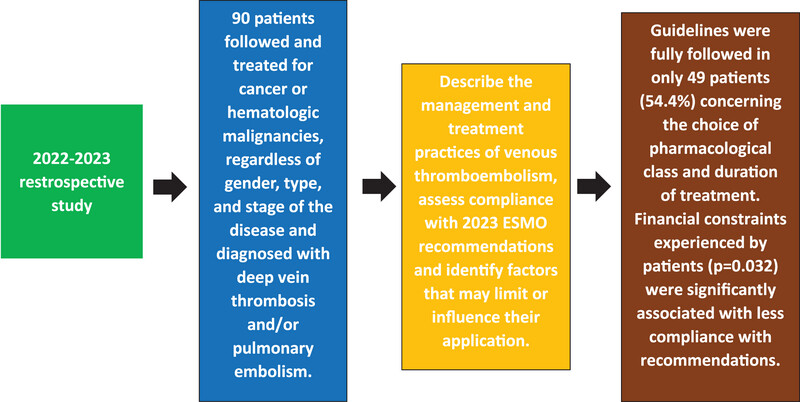
We conducted, in a Tunisian center, a retrospective study on 90 patients, revealing adherence to 2023 European Society for Medical Oncology recommendations for venous thromboembolism treatment in cancer patients. Guidelines were fully followed in only 54.4% of cases. Financial constraints experienced by patients were significantly associated with less compliance with guidelines.
E74-like factor 4 promotes the proliferation, invasion, and migration of colorectal cancer cells via long non-coding RNA integrin subunit beta 8 antisense RNA 1-mediated histone H3 lysine 27 trimethylation modification
- Pages: 761-770
- First Published: 26 September 2024
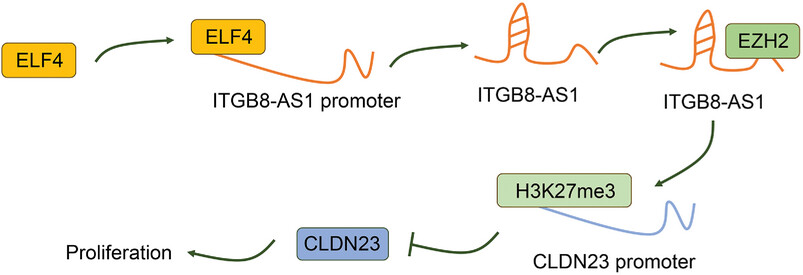
E74-like factor 4 transcriptionally activates integrin subunit beta 8 antisense RNA 1 (ITGB8-AS1) and promotes the binding of ITGB8-AS1 to the enhancer of zeste homolog 2, which catalyzes the histone H3 lysine 27 trimethylation modification in the claudin-23 (CLDN23) promoter, thus decreasing CLDN23 expression and accelerating colorectal cancer progression.
Established the prediction model of early-stage non-small cell lung cancer spread through air spaces (STAS) by radiomics and genomics features
- Pages: 771-778
- First Published: 01 July 2024
Different characteristics of the tumor immune microenvironment among subtypes of salivary gland cancer
- Pages: 779-788
- First Published: 04 September 2024
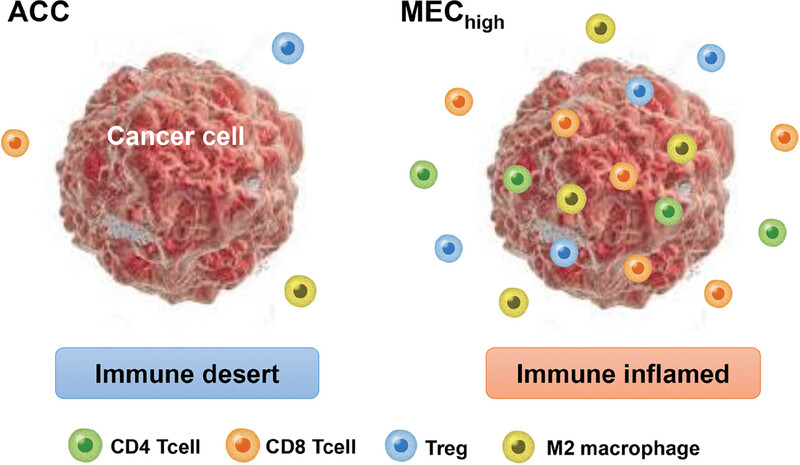
The tumor immune microenvironment of adenoid cystic carcinoma was the so-called immune desert type, which may explain the poor response of this type to immune checkpoint inhibitors. In contrast, high-grade mucoepidermoid carcinoma was of the immune inflamed type, which may support the application of immune checkpoint inhibitors to this pathological subtype.




